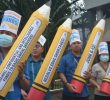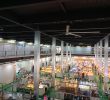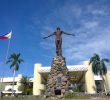By TYRONE A. VELEZ
DAVAO TODAY
DAVAO CITY – Farmers and the business community don’t see eye-to-eye with regards to what the direction Mindanao’s agri-business is taking under the East Asia Growth Area (EAGA) Triangle and ASEAN integration.
Mindanao Development Authority (MinDA) Investments and Public Affairs Director Romeo Montenegro announced after hosting the Brunei-Indonesia-Malaysia-
“We are in a position towards improving, and in EAGA we can make a strong positioning for our agriculture (economy),” said Montenegro.
Mindanao is said to be the top exporter of eight of ten products in the Philippines including banana, pineapple, coconut, seaweeds, cacao and coffee.
But the farmers’ group Kilusang Magbubukid ng Pilipinas Southern Mindanao is worried that conforming the agri-business to exports under EAGA or ASEAN will only worsen the plight of farmers and farmworkers.
Their spokesperson Pedro Arnado, a farmer from North Cotabato, said agriculture is now “monopolized” by plantations and traders.
“Plantations are monopolized by capitalists, who tend to control prices and wages that leave farmers poorer,” Arnado said.
Business observers said another aspect in agriculture in Mindanao is to cultivate some 100,000 hectares for hybrid rice production.
Montenegro said EAGA’s current investment blueprint aims to “harmonize” production among member-countries that will produce high-value products for the international market.
“For example, if the Philippines is viable for poultry, Indonesia can provide us corn feeds and Malaysia which has in Halal will certify our poultry towards a bigger market in the Middle East. That’s the idea, there’s integration and cooperation. We put together a product viable for a larger market,” said Montenegro.
He said this harmonization also complements the goal of ASEAN integration of having the sub-region function as a one-production base by 2015.
“We don’t talk now about trading the same products within ourselves, now we talk of coming up with consolidated products that we can give to markets abroad,” Montenegro said.
The BIMP-EAGA is a subregional cooperation program formed in 1994 to promote agro-industry, tourism and small-and medium-enterprises.
After falling silent in the 1997 Asian financial crisis, senior officials decided to regroup the EAGA in 2001 and came up with a series of economic roadmaps focusing on infrastructure development especially in transportation and community tourism.
The plans are being supported by the Philippine Banana Growers and Exporters Association (PBGEA), which will push their main product of fresh Cavendish for the world market.
“We have comparative advantage over our partners in terms of natural and human resources. The banana export industry is one sector that the other countries can tap for processing or value-adding and re-exporting,” said Yvette Asunto, an official of PBGEA.
Asunto mentioned the usefulness of Cavendish banana which can be processed into flour, puree, vinegar, catsup and other food items. Dried chips can be used from ingredients for animal feeds up to industrial glue, and banana fiber can be utilized for crafts and paper bills.
Mindanao’s banana industry covers 248,675 hectares including 82,050 for Cavendish, and provides 165,000 jobs with annual wages worth P42.3 billion.
But Asunto said government must double its efforts to “educate and prepare the industry” on the scenario of ASEAN.
“Government agencies should upgrade their facilities and services to guarantee the safety of local businesses and safeness of products. 2015 is just around the corner and yet the psyche of majority of Filipinos is still not attuned of what it would be like under a “One Asean”. We believe government has to double-up its efforts in drumbeating the “positives and negatives” of the Asean economic community,” she said.
But Arnado of KMP is worried that with massive conversion of farm lands, such as the thrust of Davao City to create a cacao plantation of over 169,000 hectares covering Paquibato District.
“Our production is based on the demands of the global market. But what if the demand for one product such as cacao or banana suddenly drops, then growers and farmers would be left with empty pockets,” Arnado said.
He urged government to look instead into food security and farmers’ security by implementing a new agrarian reform program that would distribute farm lands to poor farmers and subsidize production. (Tyrone A. Velez/davaotoday.com)
agriculture, Asean, bimp, bimp-eaga, davao city, Mindanao, Philippines\









